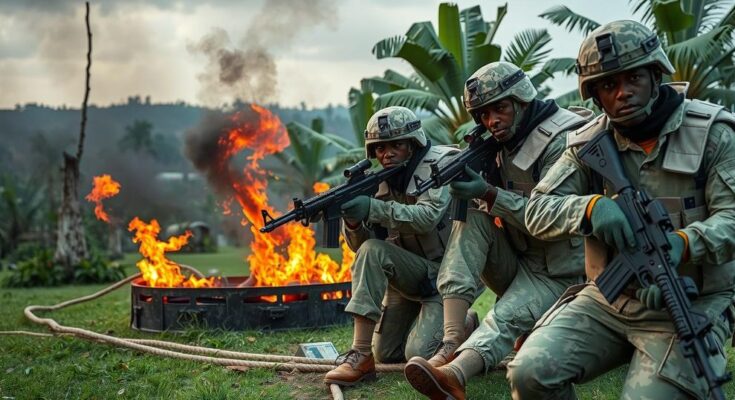In December 2024, fighting in the Lubero region of North Kivu displaced over 290,000 people, contributing to a total of 2.7 million displaced individuals in the province. The violence involves clashes between the Congolese army and the M23 rebel group, along with assaults from the ADF. The humanitarian situation is critical, worsened by failed peace talks and external support for rebel activities.
In the Lubero region of North Kivu, Democratic Republic of Congo, severe fighting has compelled over 290,000 individuals to flee their homes within December alone, according to the United Nations Office for the Coordination of Humanitarian Affairs (OCHA). This recent displacement adds to the broader crisis, as the total number of displaced persons in North Kivu escalates to approximately 2.7 million. The ongoing conflict, primarily fueled by clashes between the Congolese army (FARDC) and the M23 rebel group, alongside the activities of the Allied Democratic Forces (ADF), has dramatically worsened the humanitarian conditions for vulnerable populations already struggling with repeated displacements.
The ongoing violence in North Kivu is a manifestation of longstanding tensions stemming from cultural, political, and territorial disputes in the region. The M23, which is linked to external support from Rwanda, and the ADF, a Ugandan group affiliated with the Islamic State, represent serious threats to stability. Despite efforts for peace negotiations, such as the talks held in Luanda, Angola, persistent clashes have notably escalated, resulting in severe humanitarian repercussions for over two million individuals already displaced prior to these recent events. The Congo serves as a critical battleground with complex historical factions influencing local dynamics.
The situation in North Kivu remains dire, as conflict between the M23 and Congolese armed forces continues to evolve, exacerbating humanitarian crises. The displacement of over 290,000 people in December alone highlights the urgency for international intervention and support to mitigate the plight of those affected. With more than 2.7 million displaced, the international community must address both the immediate humanitarian needs and the underlying causes of this prolonged violence.
Original Source: www.fides.org




